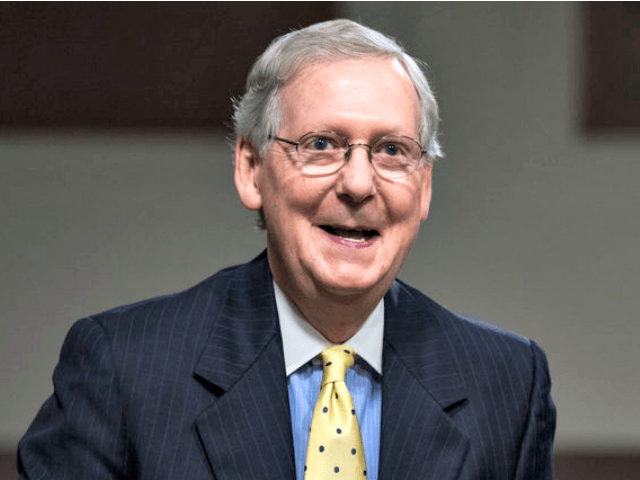Senate Republicans are moving closer to a deal on health care reform despite their differences on Medicaid spending.
Senate Majority Leader Mitch McConnell (R-KY) expressed delight that the Senate is edging closer to a deal on health care after three hours of closed-door meetings. McConnell told reporters, “We’re getting close to having a proposal to whip and to take to the floor.”
McConnell works with a hard whip count. The Senate can only afford to lose two of his chamber’s Republican seats, with Vice President Mike Pence to break the tie. At the moment both Sen. Rand Paul (R-KY) and Sen. Susan Collins (R-ME) remain skeptical towards the bill. Sen. Shelley Moore Capito (R-WV) hopes for a slower rollback of Obamacare’s Medicaid expansion. Pushing for a more moderate bill to appease Sens. Capito and Collins might lose the votes of more conservative senators such as Rand Paul, Ted Cruz (R-TX), and Mike Lee (R-UT).
Even with the complex balancing act, Sen. Mike Rounds (R-SD) remains optimistic. He said, “This is what I was hoping to have the leadership be able to share with us, and I feel very good about the fact that we’re moving in the right direction.”
The Senate bill contrasts with the House-passed bill on several key planks. The Senate bill would cut Medicaid at a slower rate compared to the House’s American Health Care Act (AHCA) and offer more generous tax credits for older Americans. The Senate’s proposal would not allow insurers to set higher prices for people with pre-existing conditions compared to healthy people.
Senator Cassidy (R-LA), a moderate force in the health care vote, said he was comfortable with the broad strokes of the health care bill, even though he has not seen the legislation yet. Cassidy explained that protections for pre-existing conditions and slower roll back of the Medicaid expansion were instrumental in his support for the bill.
“What we’ve been told so far, states would have the ability, a lot more power than they do under Obamacare, to shape their future, and I think we’ve gotta return the power to the states,” the Louisiana senator said, potentially referring to state waivers for certain Obamacare regulations or per-capita cuts to Medicaid spending.
According to the Congressional Budget Office (CBO), the House’s AHCA would save $834 billion over the next ten years by cutting Obamacare’s Medicaid expansion. Slowing the phaseout of Medicaid expansion would cost more, though it would give low-income Americans and states more time to adjust.
Sen. Ron Johnson (R-WI) believes that the Senate needs a slower rollback of Obamacare’s Medicaid expansion. “I don’t want to pull the rug out from under anyone,” Johnson said, “but let’s not leave the rug out there for a couple more years to have more people stand on the rug.”

COMMENTS
Please let us know if you're having issues with commenting.